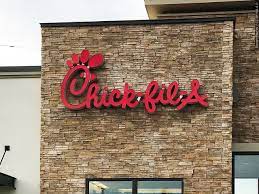Chick-fil-A, a prominent fast-food chain known for its commitment to quality and customer satisfaction, recently announced a significant change in its antibiotic policy regarding chicken production. This decision, shifting from a “No Antibiotics Ever” (NAE) standard to a “No Antibiotics Important To Human Medicine” standard, has sparked debates and raised questions about food safety, public health, and the ethical considerations surrounding antibiotic use in animal agriculture. In this comprehensive article, we explore the factors driving Chick-fil-A’s policy change, examine the implications for consumers and the industry, and discuss the broader implications for antibiotic resistance and sustainable farming practices.
Understanding Chick-fil-A’s Antibiotic Policy Shift: Chick-fil-A’s decision to transition from NAE to NAIHM standards reflects a pragmatic response to supply chain challenges and concerns about the availability of antibiotic-free chicken. While the company remains committed to sourcing high-quality chicken and upholding animal welfare standards, the shift acknowledges the complexities of antibiotic use in animal agriculture and the need for a balanced approach to ensure both animal health and human safety.
Navigating Antibiotic Use in Animal Agriculture: Antibiotics play a crucial role in treating and preventing illness in food animals, but their indiscriminate use can contribute to the emergence of antibiotic-resistant bacteria, posing risks to human health. By adopting the NAIHM standard, Chick-fil-A aims to strike a balance between addressing animal health needs and minimizing the use of antibiotics that are medically important for treating human infections. This approach aligns with regulatory guidelines and industry best practices aimed at promoting responsible antibiotic stewardship and mitigating the risk of antimicrobial resistance (AMR).
Impact on Food Safety and Consumer Health: The implications of Chick-fil-A’s antibiotic policy shift extend beyond the company’s operations to broader considerations of food safety and consumer health. While the use of antibiotics in animal agriculture is regulated by government agencies to ensure compliance with safety standards, concerns persist regarding the potential transmission of antibiotic-resistant bacteria through contaminated meat products. As consumers become increasingly aware of these risks, transparency and accountability in food production practices become paramount, underscoring the importance of informed consumer choice and regulatory oversight.
Addressing Antibiotic Resistance and Sustainable Farming Practices: Antibiotic resistance remains a global public health concern, necessitating concerted efforts to curb its proliferation across human and animal populations. By promoting responsible antibiotic use, supporting research and innovation in alternative disease prevention strategies, and advocating for sustainable farming practices, stakeholders can contribute to the collective effort to combat antibiotic resistance and safeguard both animal and human health. Chick-fil-A’s decision to revise its antibiotic policy serves as a catalyst for broader discussions on the intersection of agriculture, public health, and environmental sustainability.
Opportunities for Collaboration and Innovation: As Chick-fil-A and other food industry stakeholders navigate the complexities of antibiotic use in animal agriculture, opportunities emerge for collaboration, innovation, and knowledge-sharing. By engaging with experts, policymakers, and advocacy groups, companies can enhance their understanding of emerging challenges and best practices, driving continuous improvement in food safety, animal welfare, and environmental stewardship. Ultimately, by fostering a culture of responsibility and accountability, the food industry can play a pivotal role in promoting a sustainable and resilient food system for future generations.
Chick-fil-A’s decision to revise its antibiotic policy underscores the dynamic nature of food production practices and the evolving landscape of consumer preferences and regulatory requirements. While the shift may raise questions and debates, it also presents an opportunity for dialogue, collaboration, and innovation across the food industry. By prioritizing transparency, accountability, and sustainability, stakeholders can work together to address complex challenges, promote public health, and ensure the integrity of the food supply chain. As consumers, policymakers, and industry leaders continue to advocate for responsible antibiotic use and ethical food production, the path forward offers promise for a healthier, more resilient future for all.
